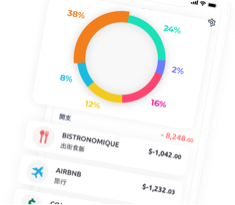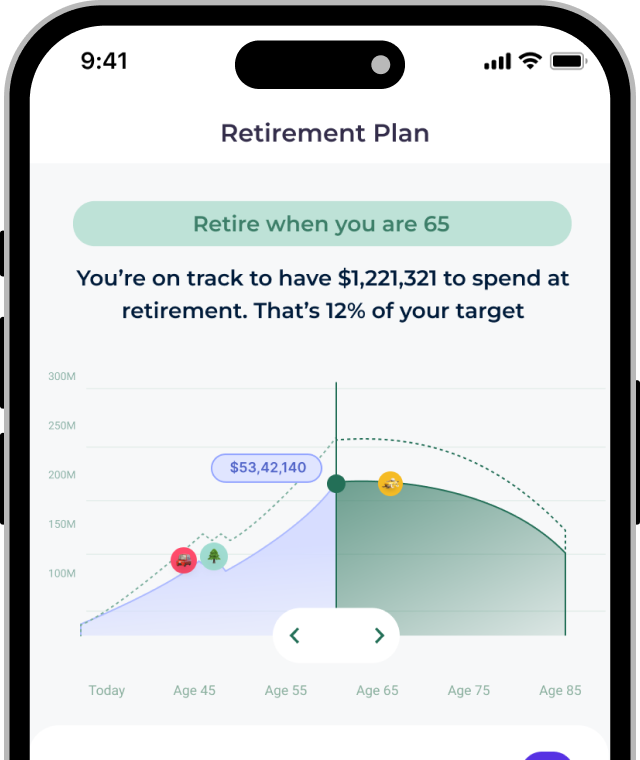When it comes to insurance in Hong Kong, it’s common for individuals to be approached by agents after entering the workforce. However, if you only have a vague understanding of insurance, making informed decisions about your insurance needs can be challenging.
Planto is here to explain the basic concepts of insurance to help Hong Kongers understand what life insurance, medical insurance, Voluntary Health Insurance Scheme (VHIS), personal accident insurance, and critical illness insurance are. We will also share key points to note when comparing insurance plans to help you prepare for the future and find the insurance plan that is right for you.
What is Insurance?
Risk is an objective existence, and purchasing insurance is a means of risk management that allows policyholders to transfer risk and avoid bearing all financial risk themselves. What can be insured includes the policyholder’s life, loved ones, health, and finances.
Hong Kong people who participate in insurance plans can make lump sum or periodic payments to purchase coverage. When the conditions and situations specified in the insurance contract are met, policyholders can make claims to the insurance company to obtain financial compensation.
Insurance has a leveraging effect, which means the compensation the policyholder receives can be several times higher than the original premium paid.
What is the Insurance Cooling-off Period?
The insurance cooling-off period was initially a regulation set by the Insurance Authority in Hong Kong for life insurance policies with longer terms because purchasing a life insurance policy is an important long-term decision. There is a 21-day cooling-off period that starts from the date the policyholder receives the insurance policy or notice of insurance, whichever is earlier.
The cooling-off period allows policyholders time to reflect on their insurance decision; during this period, they can change their minds. If they choose to cancel the policy, they will receive a premium refund.
For other types of insurance policies, the length of the cooling-off period is determined by the insurance company. Currently, most policies have a cooling-off period of 14 to 21 days, and policyholders should pay attention to the exact number of days to avoid losing their rights.
Making Good use of Insurance Assessment Tools
Before purchasing insurance, you can use various calculation tools available in the market to assess your financial situation and plan for the future. These tools can serve as the basis for your insurance purchase decision.
For instance, the Insurance Authority has launched a “Protection Needs Assessment Tool” to estimate whether your protection coverage for the next 50 years is sufficient. It is not wise to blindly believe that the larger the sum insured, the more comprehensive the protection will be. Savvy Hong Kongers should make appropriate choices based on their life stages and needs.
Main Types of Insurance in Hong Kong: Life, Health, Accident, and Critical Illness
There are various insurance products available in the market that cater to personal needs. Let’s discuss the most common types of insurance that the general public in Hong Kong usually encounter.
Life Insurance in Hong Kong
Life insurance provides a cash benefit to the designated beneficiary of the policyholder upon the insured’s death, regardless of whether the cause of death is natural or accidental. This compensation helps the beneficiary cover the unexpected financial expenses that arise after the insured’s death.
Life insurance is generally divided into term life insurance and whole life insurance. Term life insurance provides coverage only for a specific period, and the contract expires afterward. On the other hand, whole life insurance provides coverage until the insured reaches the age of 100, and the insurance company usually pays the benefit after the contract expires.
Health Insurance in Hong Kong
Health insurance primarily covers medical expenses related to illness or injury. Claims are reimbursed based on the actual medical costs incurred. The coverage usually includes both inpatient and outpatient medical expenses.
Hong Kong insurance for health typically includes coverage for inpatient and outpatient medical expenses. Inpatient coverage contains costs related to hospitalization, such as room and board, doctor’s fees, surgical fees, and miscellaneous expenses.
Outpatient coverage, on the other hand, includes costs related to visits to general practitioners, prescription drugs, and laboratory tests. Some policies may also cover expenses related to traditional Chinese medicine, physical therapy, and chiropractic care. VHIS is a type of health insurance that meets high standards set by the government to ensure good quality coverage for policyholders.
Personal Accident Insurance in Hong Kong
As the name suggests, accident insurance covers unexpected and unforeseeable bodily injuries caused by accidents. These can include car accidents, injuries caused by falling objects, and injuries sustained while riding public transportation. However, accident insurance does not cover sudden medical conditions like heart attacks. Therefore, clarifying the coverage with the insurance broker or agent before purchasing a policy is essential.
Critical Illness Insurance in Hong Kong
Critical illness insurance provides a cash benefit if the insured is diagnosed with a severe illness that threatens their life and meets the definition of critical illness specified in the policy. The policy stipulates the illnesses covered and the criteria for each illness. Common critical illnesses include cancer, heart disease, and stroke. The length of the illness can also affect the eligibility for compensation and the amount of compensation the insured can receive.
Things to Consider When Comparing Insurance Policies
Premiums
When considering insurance in Hong Kong, it is natural to focus on the price. However, it’s important to remember that insurance is a long-term expense, and consumers should evaluate policies based on their long-term financial impact.
To avoid bias, it’s essential to compare policies from different insurance companies using equal terms, such as the terms and coverage listed on the policy. It’s also crucial to purchase insurance that meets your needs rather than solely selecting a policy because it is cheap.
Coverage
Each policy has its coverage, and the terms and regulations listed on the policy will indicate the period during which the policy is effective, and the insured can receive compensation after a specific event or accident occurs. The coverage may differ even if it is the same type of policy.
In addition, you should pay attention to the amount of compensation. For example, when buying life insurance, you may not necessarily seek the maximum coverage, but you can also realize asset appreciation through life insurance with savings components. Please calculate carefully the compensation amount or expected policy value that meets your needs based on your family’s future needs.
Exclusions
Exclusions are a critical aspect of buying insurance in Hong Kong, referring to items or situations not covered by an insurance policy. It’s crucial to understand that no policy can cover all risks or accidents, and insurance companies use exclusions to control their risks.
While exclusions are rarely mentioned in insurance advertisements, they are always listed in the policy contract. It’s essential to carefully review the list of non-covered items in the policy before purchasing to avoid finding out later that you are not eligible for compensation. This can be financially detrimental and may lead to unnecessary expenses.
FAQ About Buying Insurance in Hong Kong
In Hong Kong, the insurance industry is regulated by the Insurance Companies Ordinance and the Insurance Authority. Insurance companies must ensure sufficient capital, adequate claims reserves, actuarial reserves, and adequate reinsurance arrangements before they can operate.
Moreover, the Hong Kong government appoints appointed actuaries to insurance companies to monitor their operations internally and prevent the misreporting of risks. Insurance sales are also subject to regulation, so consumers need not worry too much.
Apart from complaining to the insurance company where you purchased the policy, all monetary disputes related to personal policies can be queried or complained to the Insurance Complaints Bureau. Complainants must fill out a complaint form and submit it with the required document copies via mail, fax, or email.
Telephone number: 2520 2728
Fax number: 2520 1967
Mailing address: 29/F, Sunshine Plaza Building, 353 Lockhart Road, Wan Chai, Hong Kong
Email: icb.enquiry@icb.org.hk


















